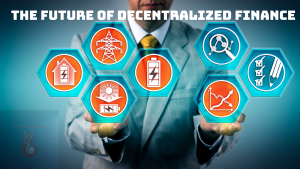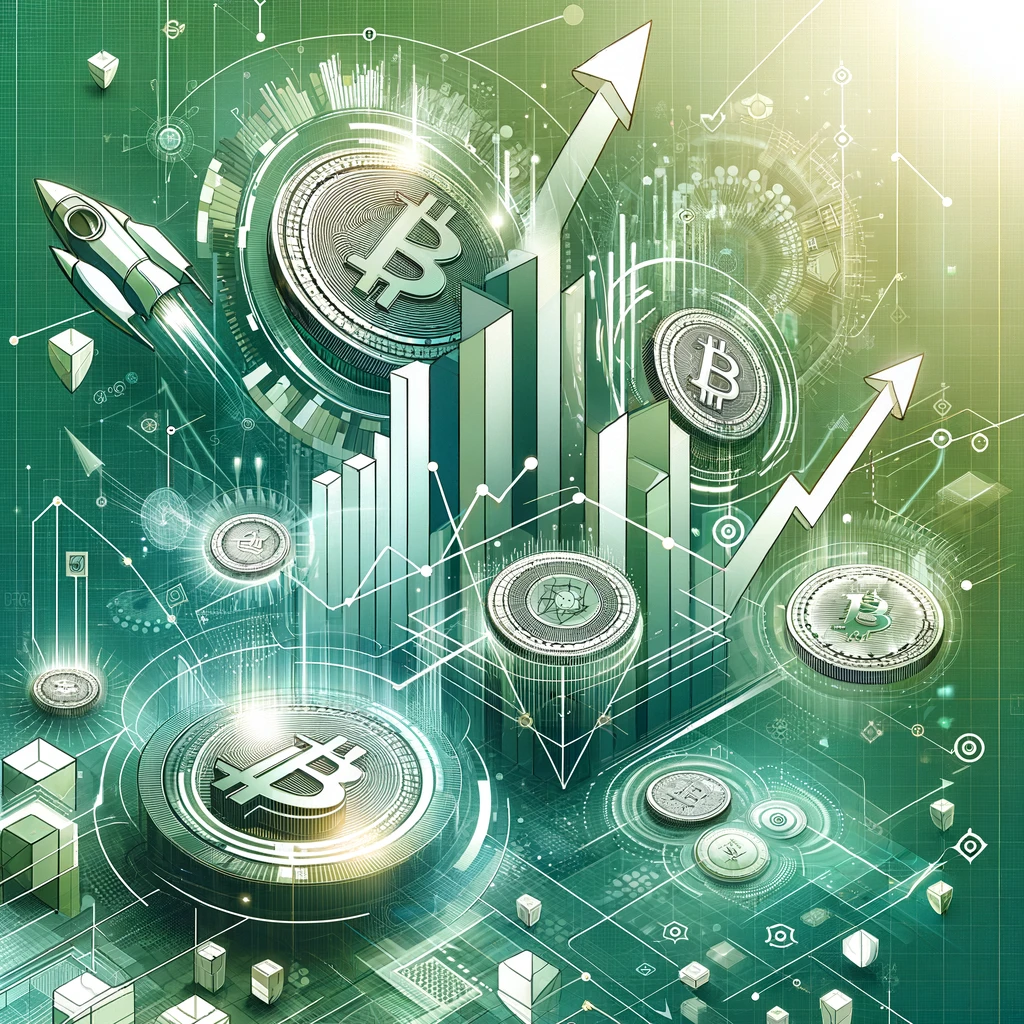The Future of Decentralized Finance?The financial landscape is on the brink of a major transformation with the advent of decentralized finance, or DeFi. DeFi represents a paradigm shift in the way we think about and interact with traditional financial systems.
Powered by blockchain technology, DeFi offers a decentralized and transparent alternative to the centralized financial intermediaries that have long dominated the industry. But by removing barriers, democratizing access, and unlocking new possibilities for investment and financial services, DeFi is shaping the future of finance in remarkable ways.
In this article, we will explore the key trends and potential of decentralized finance,
and how it is revolutionizing the way we perceive and engage with the financial world.
The Future of Decentralized Finance: Transforming the Financial Landscape

The traditional financial system has long been centralized, with banks and other intermediaries acting as middlemen in transactions.
However,
the emergence of blockchain technology has paved the way for a new era in finance known as decentralized finance, or DeFi.
DeFi represents a system of financial applications built on the foundations of blockchain technology. It enables peer-to-peer transactions without the need for intermediaries, offering a secure, transparent, and accessible alternative to traditional financial systems.
The potential of DeFi to revolutionize finance is already evident in several ways
Democratizing Access to Financial Services
In many parts of the world, a significant portion of the population lacks access to essential financial services. DeFi has the power to address this issue by providing financial services that are accessible to anyone with an internet connection and a smartphone.
Decentralized lending platforms like Aave and Compound exemplify this democratization of access. They enable individuals to borrow and lend funds directly, without relying on traditional banks. Through these platforms, borrowers can secure loans at lower rates, while lenders can earn interest on their funds.
Reducing Reliance on Intermediaries
Traditional financial systems heavily rely on intermediaries, resulting in high fees and limited accessibility. DeFi disrupts this paradigm by utilizing smart contracts, which are self-executing agreements that enforce transaction terms automatically. By removing the need for intermediaries, individuals can engage in direct transactions, reducing costs and increasing efficiency.
Unlocking New Investment Opportunities
DeFi unlocks a plethora of investment opportunities, enabling individuals to invest in decentralized applications and protocols. These investments can take various forms,
such as acquiring tokens that grant access to specific DeFi applications or staking tokens to earn rewards.
Liquidity mining serves as an illustrative example of a DeFi investment opportunity. But by providing liquidity to decentralized exchanges like Uniswap, individuals can earn rewards in the form of tokens while contributing to the liquidity of the exchange.
In conclusion
the future of decentralized finance, or DeFi, holds tremendous potential to revolutionize the financial landscape as we know it. With its ability to democratize access to financial services, reduce reliance on intermediaries, and unlock new investment opportunities, DeFi is poised to reshape the way we think about and engage with traditional financial systems.
One of the key strengths of DeFi lies in its ability to provide financial services to individuals who have previously been underserved or excluded from the traditional banking system.
By leveraging blockchain technology, DeFi platforms offer a level playing field, allowing anyone with an internet connection and a smartphone to access essential financial services.
This democratization of finance has the potential to empower individuals,
particularly those in developing countries, by giving them the tools they need to build a more secure and prosperous future.
Furthermore, DeFi challenges the traditional role of intermediaries in financial transactions. By utilizing smart contracts and decentralized networks,
DeFi eliminates the need for intermediaries such as banks, reducing costs and increasing efficiency. This not only enables faster and more seamless transactions but also removes the barriers that have traditionally hindered financial inclusion.
The Future of Decentralized Finance
DeFi also introduces new and exciting investment opportunities for individuals. Through tokenization and decentralized applications, individuals can participate in investment activities that were previously limited to institutional investors. Whether it’s investing in promising DeFi projects, liquidity mining,
or staking tokens to earn rewards, DeFi opens up a world of possibilities for individuals to grow their wealth and participate in the success of emerging financial ecosystems.
While DeFi is still in its early stages, the growth and innovation within this space are remarkable. However, it’s important to note that with its rapid expansion, there are also risks and challenges that need to be addressed, such as regulatory compliance, security, and scalability.
As the DeFi ecosystem continues to mature,
it is expected that these issues will be resolved, paving the way for broader adoption and acceptance.
In summary, decentralized finance represents a paradigm shift in the way we approach financial systems. But by democratizing access, reducing reliance on intermediaries, and offering new investment opportunities, DeFi has the potential to empower individuals, promote financial inclusion, and reshape the future of finance.
As we embark on this transformative journey, it is essential for regulators, developers, and users to collaborate and navigate the evolving landscape with caution, ensuring that the benefits of DeFi can be harnessed to their fullest potential. The future of decentralized finance is bright, and its impact on the global economy is set to be profound.
block chain cryptocurrency decentralized financial freedom
Last modified: 4 July 2023











great post – thanks !!
Loved this post
Hey there! Came across your post on the WordPress feed and couldn’t resist saying hello. I’m already hooked and eagerly anticipating more captivating posts. Can’t seem to find the follow button, haha! Guess I’ll have to bookmark your blog instead. But rest assured, I’ll be keeping an eye out for your updates!
Thank you for reaching out and showing interest in my blog post! I’m glad to hear that you found it captivating, and I appreciate your enthusiasm to read more of my content. I’ll strive to provide engaging and informative content, and I hope you continue to enjoy reading my blog. If you have any specific topics or questions you’d like me to cover, feel free to let me know. Thanks again for your support!
Hey there! Your blog is an incredible resource for anyone interested in bingads . Your interviews are incredibly informative and have helped us in our own efforts to grow in the industry . We especially loved your recent posts about travel-and-tourism . Keep up the fantastic work and we look forward to reading more from you soon!
Thanks again this was a great read
Legendary Business Ventures
Foodie
Thank you for your feedback! I appreciate your kind words and I’m glad to hear that you found the information in my blog helpful for your business growth in the bingads industry. It’s great to know that the interviews and posts about travel-and-tourism resonated with you. I will continue to provide informative content, and I hope you find value in future articles as well. If you have any specific topics or questions you’d like me to cover, feel free to let me know. Thanks again for your support!
[…] this rapidly evolving era of Decentralized Finance, a new frontier of financial empowerment and autonomy beckons. DeFi stands as a testament to the […]